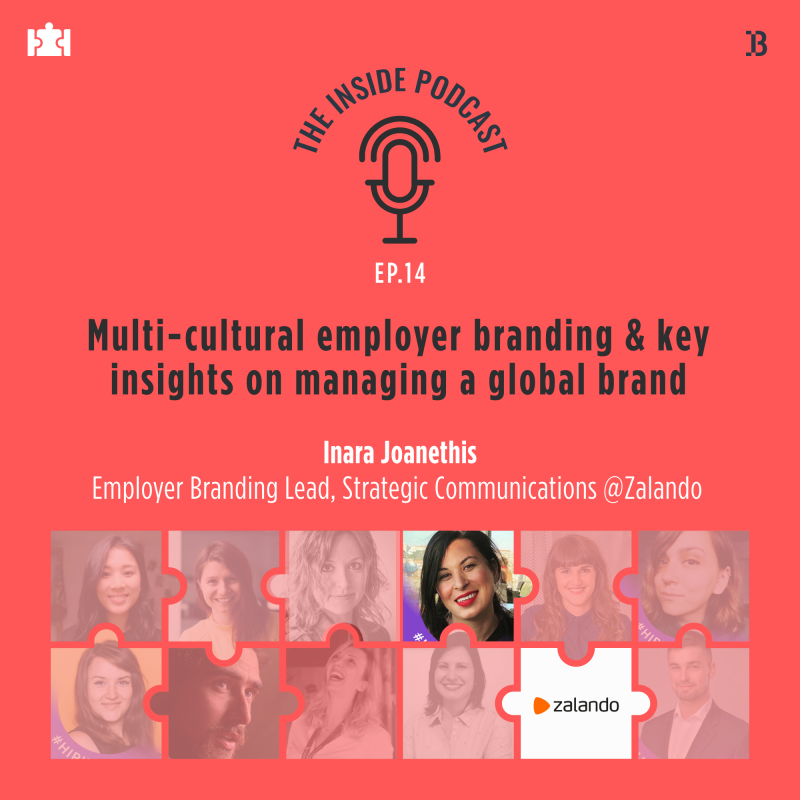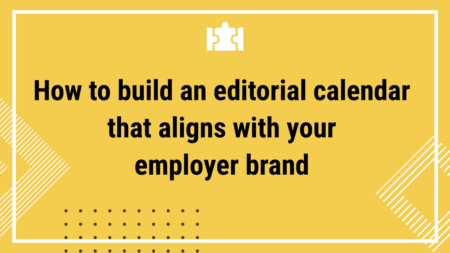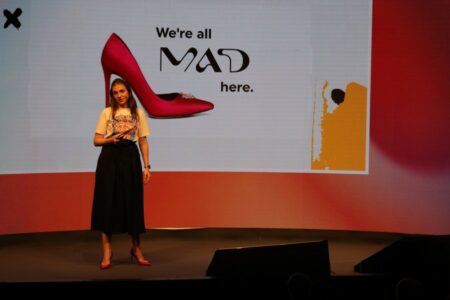Overview
In Ep. 14 of Employer Branding: The Inside Podcast we’ve had the pleasure to speak with Inara Joanethis, Employer Branding Lead at Zalando, share her take on managing a global brand, embracing the competition, putting your ego aside, and insights to mastering multi-cultural employer branding.
What you’ll learn by listening
- Main differences between employer branding in a startup & employer branding in a corporation
- What it’s like to manage a multi-layered, global brand.
- Whether or not employer branding is universal
- How to bring employee value proposition to the next level
- The importance of staying true to your values
- How to embrace the competition & put your ego aside
About the company
Zalando is Europe’s leading online platform for fashion and lifestyle. Founded in Berlin in 2008, we bring head-to-toe fashion to 35 million active customers in 17 markets, offering clothing, footwear, accessories and beauty. The assortment of international brands ranges from world famous names to local labels. Our platform is a one-stop fashion destination for inspiration, innovation and interaction. As Europe’s most fashionable tech company, we work hard to find digital solutions for every aspect of the fashion journey: for our customers, partners and every valuable player in the Zalando story. Our goal is to become the starting point for fashion.
Enjoy listening to Ep.14 of The Inside Podcast on Spotify!
Podcast transcription | Multi-cultural employer branding & key insights on managing a global brand with Inara Joanethis @Zalando
Georgiana: Hi everyone! This is Georgiana and you’re listening to Employer Branding: The Inside Podcast. Today I’m super happy to be talking to someone who works in one of my favorite companies, Zalando. And this person is Inara Joanethis. I hope I pronounced your name correctly. Inara is the Employer Branding Lead at Zalando. Welcome, Inara! And thank you for accepting my invitation.
Inara Joanethis: Hi, Georgiana. Hi, everyone!
Georgiana: Please tell me, because I’m sure everyone wants to know what an employer branding lead in a big company does. What what do you do on a daily basis? What is your role about?
Inara Joanethis: I specifically lead the employer brand communications team. We’re responsible for setting the strategy of the brand, developing employee value propositions, and related campaigning. We also perform market research, observe the trends and kind of get all of the external material thinking to deploy later on while we activate for the brand. On the daily basis, normally it’s a mix of writing, doing presentations, connecting with teams because I have a big project right now; so I’m probably talking to the entire population of the company up to senior vice presidents and management board.
So yeah, writing, communicating, both in written form, but also to the people around me, validating some of the things, connecting to different projects that are running in the company that might have, you know, an impact on what we’re doing. I have a team, so some operational work, checking in on things that are happening, and connecting with external partners. I would say it’s very communicated work, but a lot of things altogether; a lot of projects and kind of a longer timeline for what we deliver allows us to be very thorough in this communication before we complete anything.
Georgiana: Wow, this is quite a lot. And I think it’s at the intersection of so many departments and so many areas. What would you say is your favorite part about this job?
Inara Joanethis: That is a very good question. I think because communication is such a physically felt thing, for me, I like observing and feeling things working out. So that might be a proposal, it might be a campaign. I do like making things, I’m a very much results-driven professional. I like really bringing value with what I do, but also having a meaningful impact on the people around me.
We may learn something together, but we may also fail together, which also very productive. But if were to outline it in one sort of aspect, that would be delivering milestones when it comes to a project, delivering some communication materials, and seeing that people get inspired from what we do, because we are responsible for building this emotional link with Zalando as an employer. So yeah, a lot of things, but a sense of completion, a sense of success along the journey are the two things that luckily I can have on a daily basis from my role. That’s also why I enjoy it very much.
Georgiana: Well, you know, Zalando really comes off as a very nice company. And I’m sure it’s a really nice environment to be in. Like I told you before we started, I am a super happy customer. And I really like everything that I see about it. But I come from a startup and I know that you worked for companies such as PricewaterhouseCoopers or Unilever so corporations. How would you see the difference between employer branding in a startup and employer branding in a corporation? Is it the same thing? Does it really translate into different activities? If so, how?
Inara Joanethis: Yeah, you’re right. I think I represent that mixed breed because, first of all, I was always making this choice consciously and mainly for professional reasons. Unilever was a very good brand. I loved the company. It’s been my alma mater in a way. But the industry itself was super low in terms of attractiveness, and that was a sort of a challenge. When I joined PwC, I realized that it was a very popular industry. It was hugely known on the market, but the brand itself was established to an extent that you couldn’t do that much with it.
I would say Zalando is a combination of both approaches. I enjoy the flexibility of it, I also would like to highlight that we’re 14,000 people. We’re no longer a small group of founders, basically, you know, going right to left southeast to know that. I think the intention behind the employer brand is the same. It’s just, as opposed to smaller companies, the understanding is a bit different; or the methodology of what the employer brand is, how we should do that. That has an impact of what physically is a tactic or a strategy behind that. I saw people in small companies delivering great things just because they could experiment and they were enjoying that.
However, I wouldn’t say that corporates are all rigid and stiff. When you have a brand that is multi-played, multi-layered in the entire world, you have to have some sort of Canvas fixed. Otherwise, you’re basically diluting your brand or may be damaging your brand. All in all, people make the brand, people work with the brand, people relate to the brand. So I think, we as people, have the same intention. But the way we deal with the complexity behind it, the flexibility, I would say it all depends on the business strategy of each company. And that all makes sense, given all set of things that are happening and intentions, and business vision for each company.
I’ve seen different approaches to work for this specific company. And I wouldn’t say like one is better or one is worse, it all depends on how you make the choice. What’s important for you when you join a company, as an employer brand.
Georgiana: For sure. And I suppose, actually I’m sure that there are cultural differences between companies in Russia or Romania and companies in Germany. And actually, between the two countries, not the companies. Would you say employer branding is universal? Or it just applies differently depending on the culture it appears.
I think employer branding is such an integral thing. It is different but similar at the same time, if that makes sense.
Inara Joanethis
Inara Joanethis: I think employer branding is such an integral thing. It is different but similar at the same time if that makes sense. And that’s because the audience is different. I actually worked with CIS. The European experience as opposed to the American outlook on how you would do employer branding for your specific target audience and what they need is very different. However, you still do universal relations because social media because it’s such a universal channel for communicating.
I think, actually, given the last very interesting a pandemic year, it’s sort of united all of us in life. Even the work itself has been very different from what work used to be before. So I think, in a way, unification trends are emerging. I’m very curious to see how it will play out. Personally, I’m very much excited and I would say differences do exist.
And normally when we were looking, for example, in drivers of attractiveness, Russia was always looking at stability, high future earnings, all of the things for myself. And when you look into the European market, I think the trend has switched to how can I help others are stronger, and that’s worlds apart. There’s still a gap there, but as I said, the European has its own aspirations, its own complications. That’s the only thing you can kind of twist. But in a couple of years, I’m sure it will be diminished a little bit.
But I, of course, hope that the pandemic will go away and we get to something normal; a new normal. So in that sense, that’s going to be different.
Georgiana: Yes. I’m sure the role of employer branding is going to take entirely new proportions after this pandemic. In fact, it already has during the pandemic. Tell me Inara, what’s the hardest thing you’ve had to do in your career so far?
Inara Joanethis: Professionally, personally, or both?
Georgiana: Maybe both, why not?
Inara Joanethis: That’s a good question. Because I always concentrate on making things happen. For me, I will get there no matter what. I’m not even associating challenges with extra difficulty. Since I mentioned Unilever, when I was promoted for that role, internally it was of huge, huge importance for the company. It still is because the ambition is there. And ambition is variable for how they’re positioned as employers. It was six years ago, so the market was wondering how to communicate the talent, because we had Gen Zs coming in.
And Generation Y was already very much a solid proportion of your workforce, and companies who adopted the mentality of the new generation were more successful. That was difficult to tie in all of the new things happening, like new channels, new drivers of attractiveness. Russia is a huge economy. We had numerous factors. I was working with a team and I had around 20 people spread out across the country, and then also maintaining the ambition – the full transparency pressure to deliver with so many things changing along the way.
I think the curiosity that I naturally possess when I work with people. I’m curious about people, and that helps me get them along the journey, but also not be stuck in this “I am an employer branding professional”. I’m with them, I’m with my audience, I feel them, they feel me. So eventually, we changed that approach and started delivering a whole new portfolio. We started doing these big, countrywide student cases, championships, all of that. And that proved to be successful. It was difficult because I think we were one of the first in the market who was doing that. And that was 2014. That was a difficult ideation process. But again, I think we had everything in place. In some things we tried and failed, but in other things we definitely excelled. Failure was channeled into knowledge that helped us get to where we want it to be.
Georgiana: Super nice. And congratulations on all the things that you’ve been doing. Not only with Zalando, but if you were to think of a nice, nice project that you worked on for Zalando, your favorite project, what would that be?
Inara Joanethis: I think I have this product right now. And that’s the project that triggered my interest to have this opportunity. We’re working on the employee value proposition. Also, given the work that we’re doing. We’re thinking about how we should – because we are very much a people-centric company – how we should bring it to the next level, how we will deploy the mission, and how we work with our partners. All of this makes this project not only an employer brand project, but an integrated company-wide project.
It’s a conversation that I think, at this level, hasn’t happened before for various reasons. I also think when you have a healthy consumer brand, one way or the other, you get to the employer brand a little bit later on in the journey. And I think that was a sort of a positive thing that the pandemic prompted because now we have a before and after. This is the first year that I see employer branding as important and as valuable as a consumer brand. Because normally people would always kind of lean towards consumer brands. But now with the behavior change, it’s actually about how you are performing as a human brand. There are a lot of insights all wrapped up around this project. We are halfway, but we are very successful at delivering what we wanted to have.
And it’s a journey every day because there are so many things you realize by just looking at the messaging and working with consultants also listening to what is happening on the market. I would say by no doubt, this is my favorite project in my entire career in employer branding. It’s because I have full flexibility, the full scope of making an impact with this work on the entire company. But also staying connected to all the people and everything that other teams are also working on, which I think is an exciting kind of community project in the sense of us all getting united.
Georgiana: Okay, and given this very intense care for people, the people-centricity in Zalando, does this company need to fight for people to come work there? Is there any competition to be dealing with, or not really?
Inara Joanethis: I think the fight itself as a mentality is not in our nature at all. I think Zalando is an example of a company that embraces support for the competition. At the end of the day, we’re all doing the same thing. If you help the industry, others will follow. We even have it in our cultural principles – put your ego second. And that’s fascinating, especially after I worked for a consulting company where it was totally different, the complete opposite. That’s why I will never go back to consulting.
Everything related was just gaining more and more and more. I think what we do and how we see the competition is this: we’re happy that companies are exploring their way, I think we ourselves have our way. We operate in so many different industries that you either embrace the position you kind of fight against, or you move the talent market by being part of it, by staying true to yourself, staying true to your values, being open and just being yourself. We are exactly the option of staying true to our values and principles by helping our partners, who could not, for example, physically sell in France during the pandemic.
We want to continue that. Yes, we’re a big company, and we need a lot of people because we’re continuously investing in new businesses and new opportunities. At the end of the day, people might come. But if you’re not true to yourself, people will leave. I mean, it’s 2021 and the companies willing to embrace a different thinking approach are definitely going to be winning without the need to fight for sure. At the end of the day, it’s just a different approach. But we’re happy that other companies are thriving. And I do not believe that important brands just copy-paste whatever other companies are going. I want us to stand out and be different. We have that in our culture that is making us different, and we’re just going our way. And I’m sure that we’ll get where we want to be.
Georgiana: Well, you know I ask all of my guests for a book recommendation that they found interesting. Some of them recommend business books, some of them recommend human resources, company culture topics. What would you say is a nice book; a book that you would recommend, that you read recently, or I don’t know, not recently?
Inara Joanethis: I think I have two books here because if you ask me what is on my table at home, one book that I’m reading is from the founder of Nike company.
Georgiana: Is it Shoe Dog?
Inara Joanethis: Yeah, exactly.
Georgiana: I want to read that one for a while.
Inara Joanethis: Yeah, that’s the one that I brought from my last trip to Moscow. And the 2nd one laying in my work area is called Culture Maps by Erin Meyer. We had a training internally. And I just got so curious about that. Especially, I mean, there are so many myths; myths about Russia. So I was like, wait a minute, I need to have at that.
And it was, I think it’s an amazing piece of work. It’s so relevant to the environment that I’m working in. Because there’s so many people on any given day; it’s almost like I’m traveling from one country to another because I feel privileged to work with so many cultures in one company, in one place. It is an amazing book; it’s very practical. She also has some YouTube videos if you need to just get a sense of what the book is about, but I highly recommend. I found it extremely insightful.
Georgiana: Super. I have stuff to add to my reading list. I learned a lot from these podcasts and from my guests, and I’m super grateful to be able to do this. And now we are at our last question Inara. Maybe you can think of an employer branding myth that you would like to debunk.
Inara Joanethis: Good question. I think the myth that I’ve come across – and was trying out myself to see if it’s real or not – is that working for the highest known, successful, popular or established brands is not always as challenging as it might look from the outside. For example, I will never work for Google because there’s nothing to do. I think in a way, it just doesn’t exist in Google.
Employer branding does not exist because they’re automatically getting people in. If I were to compare a colder, intellectual, and highly rated in terms of flexibility brand, and maybe more vibrant, established, and not ideal one, I would go for the second. Even though the role of the employer brand is to channel that a company is great, successful, and all that, some brands stopped being real if that makes sense.
I made my choice. That’s why I’m in this company doing what I’m doing. But I totally understand why people work for established brands for years and years. I think it’s a kind of personal choice. You’re either part of this or part of a different environment. I know where I am. And I am very much happy about the choice that I made a couple of years ago when I relocated for this role and joined a company that I had no idea about. I did not know Zalando was so big, but since I felt for the people, what I saw and I again, my intuition at that time channeled into the knowledge that I have right now and into the state of mind where I’m happy to be where I am. I literally don’t have any regrets. By working with this brand, also as a professional because you have to love the brand you’re working with.
Georgiana: Okay, thank you so much, Inara for your time. This was really nice. And I wish you good luck in your role. And yeah, I hope to hear the good things that I’ve heard about Zalando so far in the years to come. Thank you so much.
Inara Joanethis: Thank you, Georgiana.






